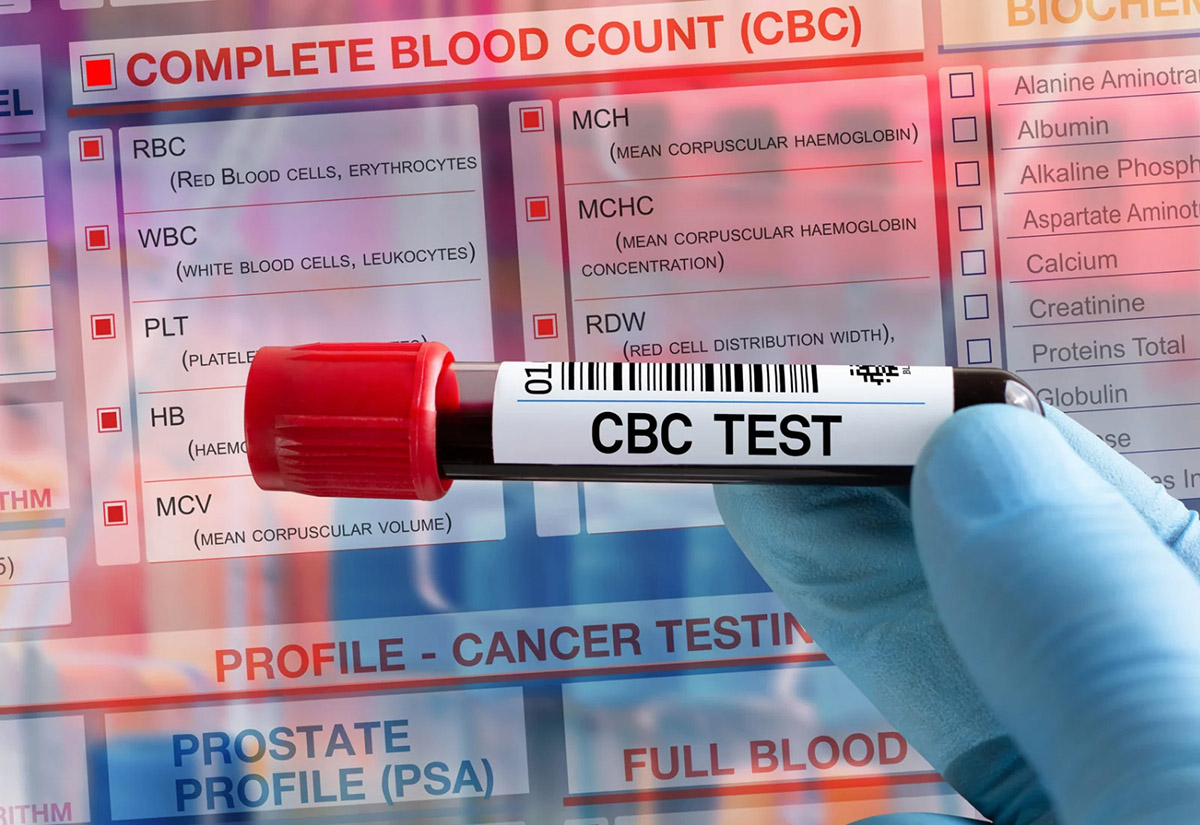

Finance
How To Fix Credit To Buy A House
Modified: February 21, 2024
Learn effective strategies to fix your credit and improve your chances of buying a house. Discover expert tips on managing your finances and taking control of your credit score.
(Many of the links in this article redirect to a specific reviewed product. Your purchase of these products through affiliate links helps to generate commission for LiveWell, at no extra cost. Learn more)
Table of Contents
- Introduction
- Understanding Your Credit Score
- Reviewing Your Credit Report
- Identifying Errors and Inaccuracies
- Disputing Inaccurate Information
- Paying Off Outstanding Debts
- Establishing Healthy Credit Habits
- Building Positive Credit History
- Seeking Professional Credit Assistance
- Saving for a Down Payment
- Applying for a Mortgage Loan
- Conclusion
Introduction
Buying a house is a dream for many people, but for those with poor credit, it can feel like an impossible goal. Your credit score plays a significant role in determining whether you’ll be approved for a mortgage loan and the interest rate you’ll receive. However, having less-than-perfect credit doesn’t mean you can’t achieve your dream of homeownership. With some strategic planning and financial discipline, you can improve your credit and position yourself to buy a house.
Understanding the factors that influence your credit score is the first step in fixing credit issues. Your credit score is based on various factors, such as your payment history, credit utilization ratio, length of credit history, types of credit, and new credit applications. By familiarizing yourself with these components, you’ll gain insights into how to improve your credit standing.
Once you have a solid understanding of your credit score, the next step is to review your credit report. Your credit report contains detailed information about your credit history, including accounts, balances, payment history, and any derogatory marks. Reviewing your credit report will help you identify any errors or inaccuracies that may be negatively impacting your credit score.
If you find any errors or inaccuracies on your credit report, it’s crucial to take immediate action to correct them. You have the right to dispute any incorrect information with the credit reporting agencies. This process involves submitting a formal dispute letter and providing evidence to support your claim. Rectifying errors on your credit report can lead to a significant improvement in your credit score.
While rectifying errors is essential, it’s equally important to address any outstanding debts you may have. Paying off outstanding debts will not only improve your credit score but also demonstrate to lenders that you are responsible with your finances. Create a budget, prioritize your debts, and develop a repayment plan to gradually eliminate your outstanding obligations.
To build a healthy credit profile, it’s crucial to establish good credit habits. This includes paying your bills on time, keeping your credit card balances low, and avoiding excessive new credit applications. Consistently practicing these habits will gradually improve your creditworthiness and make you a more attractive borrower in the eyes of lenders.
If managing your credit feels overwhelming, seeking professional credit assistance can be beneficial. Credit counselors can provide personalized guidance, help you create a realistic financial plan, and negotiate with your creditors on your behalf. Their expertise can help you navigate the complexities of credit repair and improve your chances of buying a house.
While focusing on improving your credit, it’s also essential to save for a down payment. Lenders typically require a down payment, which can range from 3% to 20% of the total home price. Saving for a down payment demonstrates your financial stability and reduces the amount you need to borrow, making you a more attractive loan candidate.
Once you’ve worked on improving your credit and saved for a down payment, it’s time to apply for a mortgage loan. Research different lenders, compare interest rates, and choose the one that offers you the best terms. Pre-approval for a mortgage loan will provide you with a clear understanding of your budget and make the home buying process more streamlined.
While fixing your credit to buy a house may require time and effort, it is achievable. By following these steps, you can improve your credit score, establish healthy credit habits, and position yourself to make your dream of homeownership a reality.
Understanding Your Credit Score
Your credit score is a three-digit number that lenders use to assess your creditworthiness. It provides them with an insight into your financial health and determines the interest rate and loan terms you receive. Understanding the factors that impact your credit score is crucial in addressing any credit issues and improving your chances of buying a house.
The primary credit scoring model used by most lenders is the FICO Score. This score ranges from 300 to 850, with a higher score indicating better creditworthiness. The FICO Score is calculated based on several key factors:
- Payment History: This is the most crucial factor in determining your credit score. It considers your track record of making payments on time, including any late payments, delinquencies, or defaults.
- Credit Utilization Ratio: This ratio compares the amount of credit you’re using to the total credit available. It’s recommended to keep your credit utilization below 30% to maintain a healthy credit score.
- Length of Credit History: The longer you have credit accounts in good standing, the better it is for your credit score. It demonstrates your ability to manage credit over time.
- Types of Credit: Having a mix of different types of credit, such as credit cards, loans, and a mortgage, can positively impact your credit score. It indicates your ability to handle various types of credit responsibly.
- New Credit Applications: Opening multiple new credit accounts within a short period may raise concerns for lenders. Only apply for credit when necessary and avoid excessive credit inquiries.
It’s important to regularly check your credit score to monitor changes and identify any potential issues. You can obtain your credit score from various credit monitoring services or directly from the credit reporting agencies.
Having a clear understanding of your credit score empowers you to take proactive steps in improving it. By focusing on areas that need improvement, such as paying bills on time and reducing credit card balances, you can gradually boost your credit score and increase your chances of securing a mortgage loan with favorable terms.
Remember, improving your credit score takes time, so be patient and persistent in your efforts. Even small positive changes can make a significant difference over time. By understanding and working towards a better credit score, you’ll be well on your way to achieving your goal of buying a house.
Reviewing Your Credit Report
Reviewing your credit report is an essential step in understanding your credit standing and identifying any errors or inaccuracies that may be impacting your credit score. Your credit report is a detailed record of your credit history, including information about your accounts, payment history, and any negative or derogatory marks.
Obtaining a copy of your credit report is relatively easy. By law, you are entitled to a free copy of your credit report from each of the three major credit reporting agencies – Equifax, Experian, and TransUnion – every year. You can request your free credit report online or by mail.
When reviewing your credit report, pay attention to the following details:
- Personal Information: Verify that your name, address, and other identifying information are accurate. Any errors in your personal information can lead to confusion or incorrect reporting.
- Account Information: Check the status of all your accounts, including credit cards, loans, and mortgages. Ensure that the listed balances, payment history, and account types are correct.
- Payment History: Examine your payment history for each account. Look for any late payments, delinquencies, or accounts that have been sent to collections. Also, check if any accounts have been reported as “charged off” or “written off.”
- Credit Inquiries: Review the list of inquiries made by lenders when you applied for credit. Ensure that you recognize all the inquiries and that there are no unauthorized or fraudulent inquiries present.
- Derogatory Remarks: Look for any negative remarks, such as bankruptcies, foreclosures, or tax liens. If any derogatory marks are listed, verify their accuracy and take note of any potential inaccuracies.
If you come across any errors or inaccuracies in your credit report, it’s important to take immediate action to rectify them. Inaccurate information can have a significant impact on your credit score and may harm your chances of securing a mortgage loan. Contact the credit reporting agencies and inform them about the errors. Provide supporting documentation, such as receipts or payment records, to support your claim. The credit reporting agencies are legally required to investigate and correct any confirmed inaccuracies.
Regularly reviewing your credit report is a proactive way to stay informed about your credit standing and address any issues promptly. By ensuring the accuracy of your credit report, you can have greater confidence in your creditworthiness and improve your chances of successfully buying a house.
Identifying Errors and Inaccuracies
Identifying errors and inaccuracies on your credit report is crucial in maintaining an accurate and fair representation of your creditworthiness. Even minor mistakes can have a significant impact on your credit score and may hinder your ability to secure a mortgage loan. Therefore, it’s important to carefully review your credit report and identify any errors that need to be addressed.
Here are a few steps to help you identify errors and inaccuracies on your credit report:
- Thoroughly Review Your Credit Report: Take the time to go through your credit report in detail. Look for any discrepancies, such as accounts that you don’t recognize, inaccurate personal information, or incorrect payment information.
- Compare with Your Records: Cross-reference the information on your credit report with your own records, such as account statements, payment receipts, and loan agreements. Ensure that the details match and that there are no discrepancies.
- Check for Duplicate Entries: Look for any duplicate entries of accounts or payments. Sometimes, a creditor may erroneously report the same account or payment multiple times, leading to an inflated balance or incorrect payment history.
- Verify the Dates: Pay attention to the dates associated with your accounts and payment history. Make sure they align with your records. Incorrect dates can affect the accuracy of your credit information and potentially impact your credit score.
- Look for Unfamiliar Inquiries: Check the list of credit inquiries on your report. If you notice any inquiries that you don’t recognize, it could indicate unauthorized access to your credit information or potential identity theft.
If you identify any errors or inaccuracies, take prompt action to address them:
- Contact the Credit Reporting Agencies: Notify the credit reporting agencies, such as Equifax, Experian, and TransUnion, about the errors you found. Provide them with detailed information regarding the inaccuracies and any supporting documentation you have.
- Submit a Dispute: Submit a formal dispute letter to the credit reporting agency that issued the report. Include specific details outlining the errors and provide copies of any relevant documentation that supports your claim.
- Follow Up Regularly: Keep track of your dispute progress and follow up with the credit reporting agencies to ensure that appropriate action is taken. They are required by law to investigate your dispute and correct any confirmed inaccuracies within a reasonable timeframe.
By identifying and addressing errors and inaccuracies on your credit report, you can ensure that your creditworthiness is accurately represented to potential lenders. This will improve your chances of obtaining favorable loan terms when buying a house and put you on a path towards financial success.
Disputing Inaccurate Information
If you discover inaccurate information on your credit report, it’s crucial to take swift action to dispute it. Inaccurate credit information can negatively impact your credit score and hinder your ability to secure a mortgage loan. Fortunately, you have the right to dispute any errors and have them corrected. Here’s a step-by-step guide on how to effectively dispute inaccurate information on your credit report:
- Document the Inaccuracies: Make a thorough record of the inaccurate information you wish to dispute. This includes noting the specific account, payment, or personal information that you believe is incorrect. Gathering supporting documentation, such as account statements or payment receipts, can strengthen your dispute.
- Write a Formal Dispute Letter: Craft a formal dispute letter addressed to the credit reporting agency that issued the inaccurate report. Clearly explain the errors and provide any relevant evidence or documentation to support your claim. Be concise, specific, and polite in your letter.
- Include Supporting Documents: Enclose copies of any supporting documents that validate your claim. This can include account statements, receipts, correspondence with creditors, or any other relevant evidence. Make sure to keep the original documents for your own records.
- Send the Dispute Letter: Mail your dispute letter and supporting documents to the credit reporting agency via certified mail with a return receipt requested. This provides proof of delivery and ensures that your dispute is received.
- Follow Up Regularly: Keep track of your dispute progress and follow up with the credit reporting agency within 30 days to ensure that it is being processed. They are legally obliged to investigate your dispute within a reasonable timeframe.
- Review the Updated Report: Once the credit reporting agency completes their investigation, they will send you an updated credit report. Review it to confirm that the inaccurate information has been corrected or removed. If the inaccuracies persist, take further action by contacting the credit reporting agency again.
It’s important to remember that the credit reporting agencies are required by law to investigate and correct any confirmed inaccuracies on your credit report. By vigilantly disputing inaccurate information, you can ensure that your creditworthiness is accurately represented and improve your chances of buying a house.
During the dispute process, it’s also a good idea to monitor your credit regularly and continue practicing responsible financial habits. By staying proactive and informed about your credit status, you can resolve inaccuracies and maintain a healthy credit profile.
Paying Off Outstanding Debts
One of the most effective ways to improve your credit score and enhance your chances of buying a house is by paying off outstanding debts. Outstanding debts can negatively impact your creditworthiness and make it challenging to secure a mortgage loan with favorable terms. Taking proactive steps to eliminate these debts will not only improve your credit score but also demonstrate responsible financial behavior to lenders.
Here are some strategies to help you effectively pay off outstanding debts:
- Create a Budget: Start by creating a comprehensive budget that outlines your income, expenses, and debt obligations. This will give you a clear picture of your financial situation and help you identify areas where you can cut expenses to allocate more funds towards debt repayment.
- Prioritize Your Debts: Make a list of your outstanding debts, including credit cards, loans, and other obligations. Prioritize them based on factors such as interest rates, outstanding balances, and payment terms. Consider paying off debts with higher interest rates first to save on interest charges.
- Develop a Repayment Plan: Once you have your list of prioritized debts, develop a repayment plan that fits within your budget. Determine how much you can allocate towards debt repayment each month and stick to the plan. Consider strategies like the snowball method (paying off the smallest debt first) or the avalanche method (paying off the debt with the highest interest rate first).
- Negotiate with Creditors: If you’re struggling to make payments, don’t hesitate to contact your creditors and explain your situation. They may be willing to negotiate lower interest rates, reduced payment plans, or even settle the debt for a lower amount. Negotiating with creditors can help make your debt repayment more manageable.
- Avoid Taking on New Debt: While you’re working on paying off your outstanding debts, it’s crucial to avoid accruing additional debt. Minimize new credit card applications and refrain from taking out new loans. Focus on reducing your existing debt load before taking on any new financial obligations.
- Celebrate Small Victories: As you make progress in paying off your debts, celebrate each milestone along the way. Recognize and reward yourself for your hard work and discipline. These small celebrations can help you stay motivated and committed to your debt repayment journey.
Paying off outstanding debts requires patience, discipline, and consistency. It may take time to eliminate your debts fully, but the effort will be worth it. As your outstanding debts decrease, your credit utilization ratio will improve, positively impacting your credit score. This, in turn, will increase your chances of obtaining a mortgage loan and achieving your goal of buying a house.
Remember, if you’re struggling with large amounts of debt or finding it challenging to repay your creditors, seeking professional assistance from a credit counselor or financial advisor may be beneficial. They can provide guidance tailored to your specific financial situation and help you develop a personalized debt repayment plan.
Establishing Healthy Credit Habits
Establishing healthy credit habits is crucial not only for improving your credit score but also for maintaining a solid financial foundation. By adopting responsible financial behaviors, you can demonstrate your creditworthiness to lenders and increase your chances of buying a house. Here are some essential tips for establishing healthy credit habits:
- Pay Your Bills on Time: Consistently making on-time payments is one of the most critical factors in determining your credit score. Set up reminders or automatic payments to ensure you never miss a payment. Late payments can significantly impact your creditworthiness.
- Keep Credit Card Balances Low: Aim to keep your credit card balances below 30% of your available credit limit. High credit card utilization can negatively impact your credit score. Paying down your balances regularly shows lenders that you can manage credit responsibly.
- Avoid Excessive New Credit Applications: Each time you apply for new credit, a hard inquiry is placed on your credit report, which may temporarily lower your credit score. Minimize new credit applications unless necessary and only take on new credit when you can comfortably manage it.
- Monitor Your Credit Regularly: Stay vigilant about your credit by regularly monitoring your credit reports and checking for any errors or suspicious activity. You can use reputable credit monitoring services to receive alerts about changes to your credit profile.
- Diversify Your Credit Accounts: Having a mix of different types of credit, such as credit cards, loans, and a mortgage, can improve your credit score. It shows lenders that you can effectively manage various types of credit.
- Avoid Closing Old Credit Accounts: Closing old credit accounts can shorten your credit history and potentially lower your credit score. Unless necessary, keep your older accounts open, as they contribute to the length of your credit history.
- Manage Your Debt-to-Income Ratio: Lenders also consider your debt-to-income ratio when evaluating your creditworthiness. Keep your debt obligations manageable in relation to your income to demonstrate your ability to repay loans.
- Regularly Review Your Credit Card Statements: Take the time to review your credit card statements each month to ensure there are no unauthorized charges or billing errors. If you notice any discrepancies, contact your credit card issuer immediately.
- Educate Yourself about Personal Finance: Knowledge is power when it comes to maintaining healthy credit habits. Stay informed about personal finance topics, such as budgeting, saving, and investing. This knowledge will help you make informed financial decisions and avoid common pitfalls.
Establishing and maintaining healthy credit habits requires consistency and discipline. By incorporating these habits into your financial routine, you’ll not only improve your creditworthiness but also set yourself up for long-term financial success.
Remember, building good credit takes time, so be patient. Each positive financial behavior contributes to your overall credit profile. By consistently practicing healthy credit habits, you’ll be well on your way to achieving your goal of buying a house with a favorable mortgage loan.
Building Positive Credit History
Building a positive credit history is essential for improving your creditworthiness and increasing your chances of buying a house. Lenders use your credit history as a key factor in evaluating your creditworthiness and determining the terms of your mortgage loan. By following these strategies, you can establish a solid credit history:
- Open a Credit Card: If you don’t have a credit card, consider opening one to start building credit. Use it responsibly by making small purchases and paying off the balance in full each month. This demonstrates your ability to manage credit responsibly.
- Pay Your Bills on Time: Consistently paying your bills, including rent, utilities, and loans, on time helps establish a positive payment history. Late or missed payments can have a negative impact on your credit score.
- Keep Credit Card Balances Low: Aim to keep your credit card balances below 30% of your available credit limit. This low credit utilization shows lenders that you are using credit responsibly and can manage your financial obligations effectively.
- Use Different Types of Credit: It’s beneficial to have a mix of credit accounts, including credit cards, auto loans, and student loans. This demonstrates your ability to handle different types of credit responsibly and can positively impact your credit score.
- Keep Old Accounts Open: Even if you no longer actively use an older credit card or have paid off a loan, consider keeping the account open. Your credit history length is an important factor in determining your credit score, and older accounts contribute to a longer credit history.
- Limit New Credit Applications: Avoid opening multiple new credit accounts within a short period of time. Each credit application results in a hard inquiry on your credit report, which can temporarily lower your credit score.
- Be Patient and Consistent: Building positive credit history takes time and consistency. It’s important to maintain good credit habits and demonstrate responsible credit management over an extended period.
- Consider Becoming an Authorized User: If someone you trust has a credit card with a long and positive payment history, you may ask them to add you as an authorized user. This can help you establish credit history, but make sure the account holder maintains good credit habits.
- Monitor Your Credit Report: Regularly monitor your credit report to ensure the accuracy of the information and to address any discrepancies or errors immediately. A clean credit report contributes to a positive credit history.
- Seek Professional Guidance: If you’re unsure about the best strategies for building credit history, consider consulting with a credit counselor or financial advisor. They can provide personalized guidance and advice tailored to your specific financial situation.
Building a positive credit history is a long-term commitment, but it is well worth the effort. By demonstrating responsible credit management and maintaining a positive credit history, you’ll improve your creditworthiness and enhance your chances of buying a house with favorable mortgage terms.
Remember, it’s important to be patient and consistent in your credit-building journey. Over time, your positive financial habits will be reflected in your credit history, making you a more attractive borrower to lenders.
Seeking Professional Credit Assistance
Seeking professional credit assistance can be a valuable resource if you’re facing challenges in improving your credit or navigating the complexities of the credit system. Credit professionals have the knowledge and expertise to guide you through the credit repair process and provide personalized strategies to help you achieve your goal of buying a house. Here are some reasons why you may consider seeking professional credit assistance:
- Expert Guidance: Credit professionals have in-depth knowledge of the credit system and can provide guidance tailored to your specific situation. They can review your credit report, identify areas for improvement, and offer personalized strategies to boost your credit score.
- Credit Repair Strategies: Professionals in the credit industry understand the strategies and techniques necessary to effectively repair credit. They can help you navigate the dispute process, negotiate with creditors, and address any inaccuracies or errors on your credit report.
- Budgeting and Financial Planning: Credit professionals can assist with budgeting and financial planning. They can help you create a realistic budget, prioritize debt repayments, and develop a plan to achieve your financial goals, including saving for a down payment on a house.
- Debt Management: If you’re overwhelmed with debt, credit professionals can provide valuable insights into debt management and consolidation options. They can work with your creditors to negotiate payment plans, potentially lower interest rates, or even settle debts for a reduced amount.
- Creditor Communication: Dealing with creditors can be challenging and intimidating. Credit professionals can act as an intermediary, handling communication with your creditors on your behalf. They have experience in negotiating favorable terms and finding solutions that work for all parties involved.
- Credit Education: Professionals in the credit industry can provide educational resources and tools to help you understand credit, develop healthy credit habits, and make informed financial decisions. They can offer insights into maintaining good credit and avoiding common credit pitfalls.
- Save Time and Effort: Repairing credit and improving your creditworthiness can be a time-consuming task. By enlisting the help of credit professionals, you can save valuable time and effort. They have the expertise and resources to efficiently navigate the credit repair process.
When seeking professional credit assistance, it’s important to research and choose a reputable credit counseling agency or credit repair company. Look for organizations with a solid track record and positive reviews from past clients. Exercise caution and beware of any scams or fraudulent practices in the credit repair industry.
Remember, while professional credit assistance can be beneficial, it’s still essential to actively participate in the process. Take an active role in understanding your credit and implementing the strategies recommended by the professionals. By working together, you can improve your credit and increase your chances of buying a house with better mortgage options.
Saving for a Down Payment
Saving for a down payment is a crucial step in the homebuying process. A down payment is a percentage of the total home price that you pay upfront, and it plays a significant role in determining your loan terms and overall affordability. Here are some strategies to help you save for a down payment:
- Assess Your Financial Situation: Take a close look at your current financial situation to determine how much you can realistically save for a down payment. Consider your income, expenses, and existing debts to establish a feasible savings goal.
- Create a Budget: Develop a budget that allows you to allocate a certain amount towards your down payment savings each month. Identify areas where you can cut expenses and redirect those funds into your savings account.
- Set Up a Separate Savings Account: Open a dedicated savings account specifically for your down payment funds. This separate account will help you visually track your progress and prevent you from dipping into the funds for other purposes.
- Automate Your Savings: Set up automatic transfers from your checking account to your down payment savings account. By automating your savings, you ensure consistent contributions without the temptation to spend the money elsewhere.
- Reduce Expenses: Look for opportunities to reduce expenses in your daily life. Cut back on discretionary spending, dine out less frequently, and find ways to save on utilities or other bills. Redirect these savings towards your down payment fund.
- Increase Your Income: Explore ways to increase your income to accelerate your savings. This could involve taking on a side job or freelance work, pursuing career advancement or additional education, or starting a small business. The extra income can boost your down payment savings significantly.
- Save Windfalls: Whenever you receive unexpected money, such as a tax refund, bonus, or gift, save it towards your down payment. Avoid the temptation to spend windfalls and instead transfer them directly into your savings account.
- Explore Down Payment Assistance Programs: Research down payment assistance programs offered by government agencies, nonprofits, or local organizations. These programs provide grants, loans, or other assistance to help eligible individuals and families achieve homeownership.
- Reevaluate Your Housing Options: If saving for a large down payment seems overwhelming, consider exploring more affordable housing options. Smaller homes, condos, or townhomes may require a lower down payment, making homeownership more attainable.
- Prioritize Your Savings: Make saving for a down payment a priority. Sacrifice short-term wants for long-term goals. Stay committed and motivated, reminding yourself of the benefits and sense of accomplishment that comes with homeownership.
Saving for a down payment takes time and discipline, but it’s a crucial step in achieving your dream of homeownership. By following these strategies and staying focused on your savings goals, you can gradually accumulate the funds needed to secure a mortgage loan and buy a house.
Remember, each contribution you make towards your down payment brings you closer to your goal. Celebrate every milestone along the way, and before you know it, you’ll be ready to start the homebuying process with confidence.
Applying for a Mortgage Loan
Once you have diligently worked on improving your credit, saving for a down payment, and assessing your financial readiness, you’re ready to take the next step: applying for a mortgage loan. A mortgage is a long-term loan used to finance the purchase of a home. Here are some important factors to consider when applying for a mortgage:
- Research Different Lenders: Take the time to research and compare different lenders to find the one that offers the best terms and rates for your mortgage. Consider both traditional lenders, such as banks and credit unions, as well as online lenders.
- Get Pre-Approved: Before you start house hunting, consider getting pre-approved for a mortgage. Pre-approval involves submitting a mortgage application and providing the necessary documentation to a lender. This step gives you a clear understanding of your budget and strengthens your offer when you find the home you want to buy.
- Gather Required Documentation: To apply for a mortgage, you’ll need to gather various documents such as proof of income, tax returns, bank statements, and employment verification. Your lender will provide you with a list of required documentation.
- Submit a Complete Application: Fill out the mortgage application accurately and completely. Include all necessary information and double-check for errors or missing details. Any incomplete or inaccurate information can delay the approval process.
- Consider the Loan Term: Decide on the loan term that suits your financial goals and circumstances. Common loan terms are 15, 20, or 30 years. A shorter term typically leads to higher monthly payments but lower overall interest costs.
- Review and Understand the Loan Terms: Carefully review all the terms and conditions of the mortgage loan, including the interest rate, repayment schedule, and any potential fees or penalties. Seek clarification from your lender if you have any doubts.
- Complete the Underwriting Process: Once you submit your mortgage application, the lender will conduct an underwriting process to assess your eligibility and creditworthiness. This process involves verifying the information you provided, reviewing your credit report, and evaluating your financial stability.
- Provide Additional Documentation if Needed: During the underwriting process, the lender may request additional documentation or clarification regarding your finances. Be prompt in providing the requested information to avoid delays in the approval process.
- Arrange for a Home Appraisal: The lender will typically require a home appraisal to ensure the property’s value aligns with the loan amount. Schedule a professional appraisal to determine the fair market value of the home.
- Receive the Mortgage Approval: Once all the necessary steps are complete and your application is approved, you’ll receive an official approval from the lender. This approval is typically valid for a specific period, so timing is essential in moving forward with the home purchase.
It’s important to note that the mortgage application process can be complex, and each lender may have specific requirements. Working with a knowledgeable mortgage professional or loan officer can provide valuable guidance and streamline the process for you.
By carefully preparing and following these steps, you’ll be well-equipped to navigate the mortgage application process with confidence. Securing a mortgage loan is an exciting step towards homeownership and achieving your dream of owning a house.
Conclusion
Fixing your credit to buy a house may seem like a daunting task, but with determination, patience, and strategic planning, it is certainly achievable. Understanding your credit score and reviewing your credit report are crucial first steps in identifying areas for improvement. By disputing any errors or inaccuracies, paying off outstanding debts, and establishing healthy credit habits, you can gradually rebuild your credit and enhance your creditworthiness.
Building positive credit history and seeking professional credit assistance when needed are additional strategies that can provide guidance and support on your journey. Saving for a down payment is a key factor in making homeownership more attainable, and applying for a mortgage loan requires careful research and preparation.
Remember, improving your credit and buying a house is a long-term process that requires commitment and discipline. Along the way, it’s important to stay focused on your goals and celebrate your progress, no matter how small. Each positive financial decision and effort to improve your credit will contribute to your overall success.
As you embark on your credit repair and homeownership journey, take advantage of the resources available to you, such as credit counseling services or financial advisors. They can provide personalized guidance and support tailored to your specific needs.
By following the steps outlined in this guide and taking control of your financial well-being, you can position yourself for homeownership. With an improved credit profile and a solid financial foundation, you’ll be well-prepared to make your dream of owning a house a reality.














